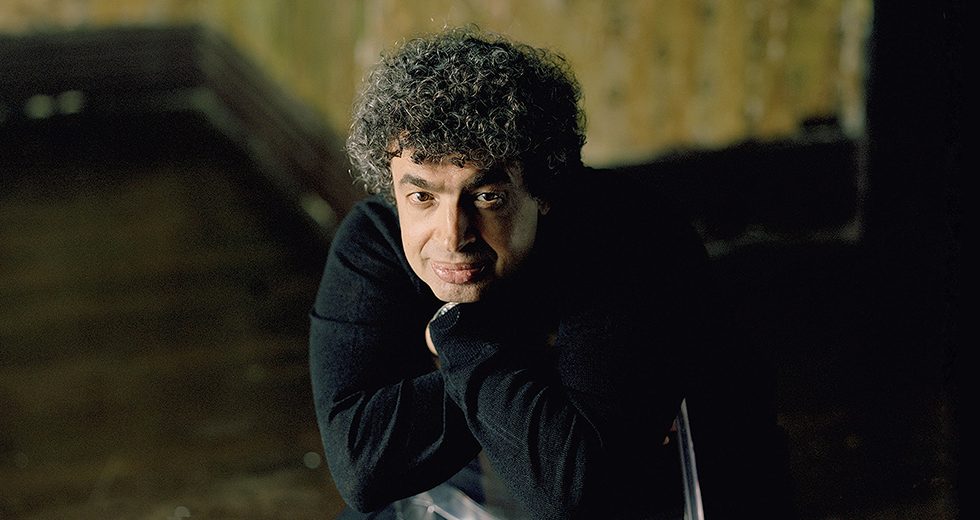
Semyon Bychkov professes a boundless devotion to the music of Tchaikovsky. “Tchaikovsky somehow ensures that when one hears a melody, one doesn’t forget it,” said the Russian-born conductor of his countryman. “That’s a gift.” In Tchaikovsky, “there’s drama always present, as well as joy — this mixture of emotions that, of course, can touch the audience.”
Surprisingly, Bychkov’s performances May 3-5 of the composer’s thrilling Manfred Symphony mark his first Tchaikovsky programs with the Chicago Symphony Orchestra. Manfred figures in Bychkov’s Tchaikovsky Project, an ongoing series of concerts, recordings and residencies. A key element is a series of discs for Decca Records with the Czech Philharmonic, encompassing the symphonies, other major orchestral works and the piano concertos. The Tchaikovsky Project has brought Bychkov to other orchestras, including the BBC Symphony and the New York Philharmonic, with more to come over the next year.
Although officially a symphony, Manfred is programmatic and strikes Bychkov as “an opera without words,” containing certain leitmotif-like themes. Inspired by Lord Byron’s dramatic poem, it depicts a wandering nobleman, wracked by his sins and the memory of his dead love. Some might draw parallels between Manfred and Tchaikovsky’s own personal circumstances. “I think the emotions of the piece are very much the emotions of the composer, but they’re not unique to him alone,” Bychkov said. “This is something that everyone experiences in their lifetime — passion, agony, guilt, you name it.”
Bychkov willingly embraces the challenges of Manfred, while admitting that “it’s an extremely difficult piece to interpret. It has a lot of different threads. To bring connection and coherence to them, and a certain transparency, while the intensity of feeling is ever so important — it’s a huge challenge. It takes a long time to live with it, to come to grips with it, and then the piece is revealed as a miracle.”
The program also includes another first for Bychkov with the CSO, the music of Max Bruch, in this case, the German composer’s lushly scored, grandly stirring Concerto for Two Pianos. The soloists are the celebrated duo pianists Katia and Marielle Labèque. With Bychkov, they’ve recorded the piece and performed it on tour with the Royal Concertgebouw Orchestra of Amsterdam. In April, the three performed the work with the Munich Philharmonic and will do so soon with the Los Angeles Philharmonic and San Francisco Symphony.
Rose and Ottilie Sutro, the American sisters who premiered the concerto, apparently lacked the technique to perform it as written and revised it themselves for that first performance in 1916. “It is challenging,” Bychkov admitted, adding that he and the Labèques perform every note of Bruch’s original score. Rather than a conventional concerto, it’s more “a mini-symphony that integrates the pianos with an orchestra.” Bychkov notes the necessity of proper balance for the pianos within the orchestra’s sometimes thick texture. A good deal of the piece, especially the adagio third movement, communicates Mendelssohnian qualities that Bychkov greatly admires.
Chicagoans can look forward to Bychkov’s return to Symphony Center with the Czech Philharmonic on Nov. 4, part of a lengthy tour. They’ll perform two popular Dvořák works, the Cello Concerto (with Alisa Weilerstein) and the New World Symphony. Bychkov cherishes the Czech Philharmonic, where he’s the musical director designate, for maintaining a “tremendous musical legacy” and “representing the national character in musical terms.”
The conductor feels special ties to American orchestras, including the CSO. “I’m an American citizen,” he said. “America was the country that welcomed me when I emigrated from the Soviet Union [in 1975]. It’s where my ‘second life’ started. The connection is very deep.”
Beyond that, Bychkov cites the CSO as one of the “very few orchestras today of great tradition that have managed to preserve their individuality, their sound, their way of phrasing, that makes them distinct from everybody else.”
Roger Pines, dramaturg at Lyric Opera of Chicago, has written for many publications, including Opera News, the Opera Quarterly, Opera magazine, International Record Review, and The Times of London.